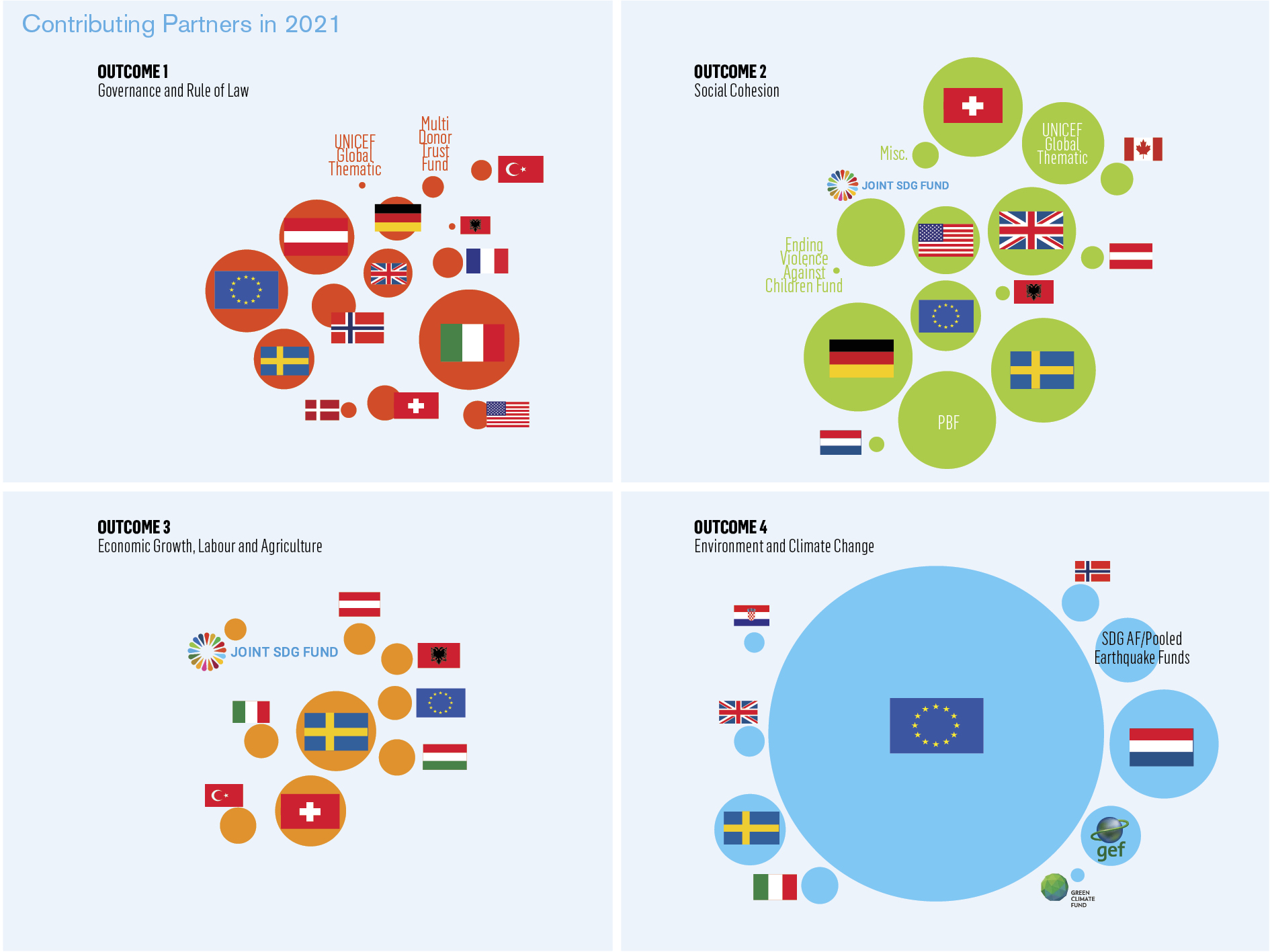Our Development Partners

Partnerships with the Government of Albania, specifically with the offices of the prime minister and the deputy prime minister, line ministries and local government, were instrumental in supporting implementation of PoCSD in 2021 and the Agenda 2030 in the country. Key cooperation partners include Parliament, prime or deputy minister’s office, line ministries and other government bodies, including but not limited to the State Probation Services, the Agency for the Delivery of Integrated Services Albania (ADISA), the Albanian State Police, the School of Magistrates, the Serious Crimes Prosecution Office, and the State Agency for Child Rights and Protection, National Institute for Statistics (INSTAT), Institute for Public Health (IPH), the Health Insurance Fund, Audio-visual Media Authority (AMA), Electronic and Postal Communication Authority (AKEP), National Agency for Information Society, National Youth Agency, National Environmental Protection Agency and Environmental Inspectorate, national human rights institutions, National Authority for Electronic Certification and Cyber Security, Council of Ministers, courts, prosecutors’ offices, local governments, local Child Protection Units, Civil Society Organisations including professional associations, employers and workers organisations, trade unions, business associations, chambers of commerce, Women's Alliances, Youth Networks, the Refugee Organisation, Albania Media Council, Agency for Support to Local Government (ASLG), Albanian School of Public Administration (ASPA), the Chamber of Notaries, electoral bodies, the alliance of women MPs, and political parties, academia, national and local media, the private sector, including banks, community organisations, European Union Commission, international bilateral donors and International Finance Institutions (IFIs).
As the UN interventions in Albania are mostly donor financed, mobilisation of the resources of partners is essential for their deployment, done either bilaterally by UN agencies or through the Albania SDG Acceleration Fund. Several partners, such as the World Bank, OSCE and the private sector, may not make a financial contribution to the UN in Albania, but their work is synergised with that of the UN, resulting in greater coverage of vulnerable or marginalised groups in the country. The UN continues to play a constructive role in the country’s coordination forums, such as the Donor Technical Secretariat, Development and Integration Partners, Integrated Policy Management Groups, bilateral engagement with the EU Delegation, World Bank, IFIs and EU member states, as well as in the regional fora. Some positive examples resulting from stronger coordination and collaboration in 2021 include: (i) post-earthquake and Covid-19 recovery support; (ii) consultations for the preparation of the new UNSDCF 2022–2026; (iii) joint analysis, policy recommendations and synergies achieved; (iv) new NSDI 2022–2030 and Integrated National Financing Framework (INFF) preparation; (v) heightened private partnerships with local and international chambers and business associations; (vi) a Peacebuilding Fund (PBF) regional project proposal; and (vii) keeping abreast of each other’s work in Albania and investigating areas of joint collaboration.

